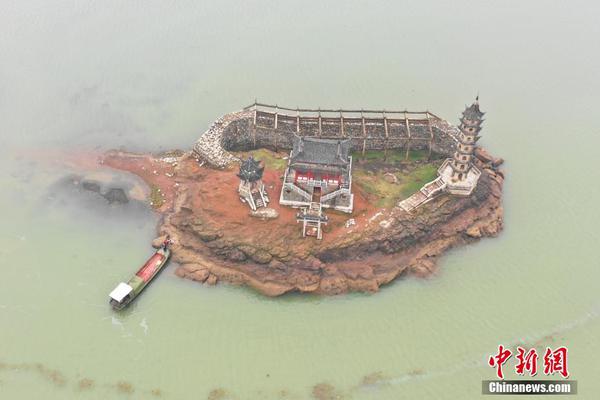It's clear that Mars once gushed with water.
Today993 Archives aerial views of the Red Planet's Jezero crater (shown below) reveal that water once poured into this basin, leaving behind telltale signs of rivers, streams, and a great lake. Some three billion years ago, a vast ocean may have blanketed a great swathe of the world, too. Back then, Mars wasn't simply rusty red; large regions were blue.
But a big question remains: How much water did Mars once have?
In new research, planetary scientists have established a likely range. And in it, the amount of water proportionally on Mars could have rivaled ocean-covered Earth.
"It suggests that Mars has had a lot of water," Bruce Jakosky, a planetary geologist at the University of Colorado, Boulder, who coauthored the new research published in the Journal of Geophysical Research: Planets, told Mashable. Jakosky is also the principal investigator for NASA's Mars Atmosphere and Volatile Evolution (MAVEN) mission, a spacecraft currently orbiting the Red Planet.
SEE ALSO: NASA rover finds damaged helicopter in the middle of Mars desertTo arrive at an answer, the researchers focused on a key question: Where has the water gone?They assessed how much has been lost to space; how much was absorbed into Martian rocks and minerals; how much has been frozen away in the polar caps; how much is preserved as buried ice from an ancient ocean; and how much water could have drained into Mars' crust.
"It suggests that Mars has had a lot of water."
Water lost into space is a sizable area of loss, or "sink." Mars gradually lost its insulating atmosphere, in part to effects of solar radiation. Ultimately Mars' once thick atmosphere diminished, and bounties of water escaped. Without this insulating blanket, the planet dried out.
Today, Mars is 1,000times drier than the driest desert on Earth.
 A satellite view of the Jezero Crater's dried-up river delta as viewed from NASA's Mars Reconnaissance Orbiter. Different colors show different sediments, like carbonates. Credit: NASA / JPL-Caltech / MSSS / JHU-APL
A satellite view of the Jezero Crater's dried-up river delta as viewed from NASA's Mars Reconnaissance Orbiter. Different colors show different sediments, like carbonates. Credit: NASA / JPL-Caltech / MSSS / JHU-APL  A conceptual depiction of the expansive Kasei Valles region on Mars some 3 billion years ago. Credit: F. Schmidt / NASA / USGS / ESA / DLR/FU Berlin (G. Neukum)
A conceptual depiction of the expansive Kasei Valles region on Mars some 3 billion years ago. Credit: F. Schmidt / NASA / USGS / ESA / DLR/FU Berlin (G. Neukum) In total, the researchers concluded that Mars lost between 380 to 1,970 meters (1,247 to 6,463 feet of water), if all this water lay uniformly over the surface like a giant ocean, a measurement called a "global equivalent layer." (Previous studies, which used different methods to gauge Mars' watery past, found less amounts of water.) A sizable unknown, and one reason for the big range, is uncertainty about how much water is now filling the pore space in Mars' crust. It's unclear, but it could be a huge amount, up to 1,000 meters (3,280 feet).
To help grasp or visualize how much water Mars once held, we can use our water-blanketed planet as a reference. If we took all the water on Earth and in Earth's crust, and scaled it proportionally to Mars' size and mass, this global layer of water would be about 1,400 meters (4,593 feet) thick on Mars.
In short, Mars may have once held Earth-like volumes of water. Perhaps less, or perhaps even more. It's unlikely all this water was present on the Martian surface at once, "but it's been at the surface at some point in Mars' history," Jakosky said.
"Having that much water would make Mars habitable."
Even so, this evidence for bounties of lost water, combined with a Martian landscape teeming with dried gullies and past evidence of rivers and lakes, shows an early Mars burgeoning with water. There's not nearly evidence that microbial life ever existed on Mars, but all this water would have likely created an environment suitable for primitive organisms to evolve.
"Water is a necessary ingredient to support life," Jakosky explained. "Having that much water would make Mars habitable."
Martian missions, like NASA's Perseverance rover, are continuing to scour this distant desert for hints of past life — like certain telltale molecules or a fragment of a cell.
"We're going down the right path to look for evidence of life," Jakosky said.
This story has been updated with more information about Mars' water-rich past.
(Editor: {typename type="name"/})
 Best robot vacuum deal: Save $140 on roborock Q7 Max Robot Vacuum
Best robot vacuum deal: Save $140 on roborock Q7 Max Robot Vacuum
 A lot of Uber, Lyft rides get posted online without anyone noticing
A lot of Uber, Lyft rides get posted online without anyone noticing
 Daisy Ridley reveals struggle with endometriosis
Daisy Ridley reveals struggle with endometriosis
 Orlando needs blood donations after deadliest mass shooting in U.S. history
Orlando needs blood donations after deadliest mass shooting in U.S. history
 Best keyboard deals: Save on Asus gaming keyboards at Amazon
Best keyboard deals: Save on Asus gaming keyboards at Amazon
Best Garmin deal: Save over $100 on Garmin Forerunner 955
 SAVE OVER $100:As of May 14, the Garmin Forerunner 955 is on sale for $373.07 at Amazon. That's a sa
...[Details]
SAVE OVER $100:As of May 14, the Garmin Forerunner 955 is on sale for $373.07 at Amazon. That's a sa
...[Details]
TV writers worry online backlash could have a negative effect on LGBTQ character representation
 AUSTIN, Texas -- The figures don't lie: Television has been burying its gay characters at startling
...[Details]
AUSTIN, Texas -- The figures don't lie: Television has been burying its gay characters at startling
...[Details]
Man films the moment Tiger Woods' golf ball knocks him off his feet
 People often describe golf as a relaxing day out, and you'd think that would apply to the spectators
...[Details]
People often describe golf as a relaxing day out, and you'd think that would apply to the spectators
...[Details]
Google Translate is generating ominous religious prophecies for some reason
 Google Translate is, er, having some issues.For instance, if you open the tool, select Maori as the
...[Details]
Google Translate is, er, having some issues.For instance, if you open the tool, select Maori as the
...[Details]
The Anatomy of Liberal Melancholy
 J.M. Bernays ,April 25, 2017 The Anatomy o
...[Details]
J.M. Bernays ,April 25, 2017 The Anatomy o
...[Details]
Captain America rice dumplings are here to save the Dragon Boat Festival
 Marvel's marketing wheels were turning in time for Thursday's start of the Dragon Boat festival.Than
...[Details]
Marvel's marketing wheels were turning in time for Thursday's start of the Dragon Boat festival.Than
...[Details]
11 noteworthy Instagram posts from the past week
 This week on Instagram, celebrities decided to give us a serious dose of nostalgia.While we were bus
...[Details]
This week on Instagram, celebrities decided to give us a serious dose of nostalgia.While we were bus
...[Details]
Stunning videos and photos show terrifying Midwest tornado outbreak
 Central Iowa was the scene of a "sudden" tornado outbreak on Thursday, resulting in some breathtakin
...[Details]
Central Iowa was the scene of a "sudden" tornado outbreak on Thursday, resulting in some breathtakin
...[Details]
What cracked the Milky Way's giant cosmic bone? Scientists think they know.
 Near the center of the Milky Wayare enormous filaments of radio energy that sometimes look like bone
...[Details]
Near the center of the Milky Wayare enormous filaments of radio energy that sometimes look like bone
...[Details]
90's TV stars queer people always wished were queer
 For LGBTQ teens growing up in the '90s, there were just a handful of out queer role models.Sure, the
...[Details]
For LGBTQ teens growing up in the '90s, there were just a handful of out queer role models.Sure, the
...[Details]
接受PR>=1、BR>=1,流量相当,内容相关类链接。